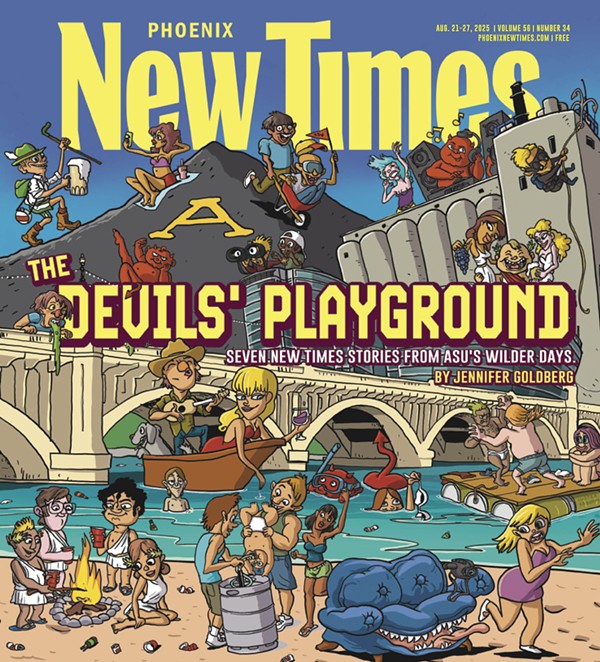Indeed, though it's set in contemporary England and is far from prim, The Mother owes a debt to Austen and her dissection of domestic drama. Here, as in Austen, what is hidden within individuals is played out on the family stage; here, as in Austen, we witness the clash of desires as well as the potential for cruelty, and for compassion, in even the smallest gesture. Family members devastate one another, both with casual comments ("You didn't even bring any wine") and solemn assertions delivered in passing, swallowed by the chaos of conversation: "Don't you think it's about time that she looked after herself?"
Whatever its pedigree, The Mother is an excellent film -- one that feels like life, sharpened to its finest points. Imagine an impeccably crafted series of domestic scenes, each portraying, unraveling, and exploring the life of a provincial woman who has, until her 60s, been half-dead, playing the roles of wife and mother without bothering to inhabit them. When she wakes up to herself, it's not simply a stirring, fortuitous surprise (though it is that, too); it's a bother and an inconvenience to those long accustomed to her absence. Acknowledging one's feelings -- and acting on them -- is not always benign; sometimes it's altogether damaging.
The Mother opens as the title character, May (played with breathtaking depth by Anne Reid), lies awake in a dreary room, her lump of a husband (Peter Vaughan) snoring beside her. Together, with the lassitude of people long since resigned to decline, they dress in dreary clothes, sit in a dreary kitchen, and travel, drearily, to London to visit their children. There, they enter another world -- the frantic, chaotic circus of people in constant motion, almost painfully alive. At their son's house, the tottering grandparents seem frozen, deer-eyed in the crossfire of cell phones, arguments, screaming children, nannies and home improvement.
Put bluntly, there are two ways to go here: succumb to death or begin to live. May's husband dies; on their first night in town, after dinner, he clutches his chest and is done with it. May, on the other hand, has work to do. Slowly, as she grieves, she also pokes through her hardened carapace and emerges as a breathing, feeling woman. In doing so, she comes to understand the depth of her loss -- that it's her sense of self, long ago surrendered to expectation, that she truly mourns. (All of this, by the way, comes through without so much ever having to be stated.)
All of the above occurs within the first 30 minutes of the film, and it would hardly spoil the ending to reveal what happens next. But one of the chief pleasures of The Mother is the opportunity to grow into the ensuing events alongside May, even inside of her, rather than knowing ahead of time what she will do. In fact, Kureishi and Michell, both men, are to be commended for the astonishing frankness and accuracy with which they get it right: May's giggly shyness, the sudden bursts of bravery, the expansion of breath in the body and the spirit. Perhaps everyone should know that a woman in her 60s -- even an apparently simple, prim housewife with a nearly extinguished soul -- is in fact a complex, dynamic and desirous being. But nobody in Hollywood seems to, let alone the men.
Suffice it to say, May gets into trouble -- with her daughter (Cathryn Bradshaw), a single mother wobbling through a destructive romance while trying to find her calling in life; with her son (Steven Mackintosh), an overstressed businessman attempting to avert bankruptcy; and with Darren (Daniel Craig), her daughter's boyfriend and her son's carpenter, a man owned by everyone but himself.
There are so many artful things about The Mother -- the flawless script; the generous, unflinching performances; the way that Michell frames his shots, often using an angle or a prop to comment on the action. (In one scene, May sits on the edge of a fountain, miserable, as a hopeful suitor stands before her; between them, the ubiquitous "Gap" sign suddenly gains profundity.) Most remarkable is the way the film remains loyal to May's point of view; it offers her compassion, even as the plot reveals the evidence of the damage she has done. Her children, contemporary urban parents in their 30s, seem far likelier candidates for sympathy; indeed, they are still wounded, and still nursing their wounds, from their mother's failure to love. But the film chooses May, and, in doing so, gives us access to someone we don't know, or hadn't known, before. It's a gift, to her and to us, one well worth receiving.








